The last few reviews of Cabela’s in Lone Tree, Colorado posted on FreeCampSites.net seemed to reflect the same sentiment across the greater Denver metro area, that RVing in the Mile High City is not welcome…
Though they have no problem with overnight parking, the city council of money grubbing politicians do not allow overnight parking anywhere. The guy at the store side we could overnight, but at our own risk. He said the city would probably come by and ask us to leave, or ticket us.
A news article posted by Denver’s ABC Affiliate on August 9, 2017, details the City of Longmont’s efforts to kick out RVers camping on city streets…
Rental prices in Boulder county are out of control,” which led Dustin to live in his 23-foot Winnebago. The lifestyle comes with the ability to drive wherever he wants. The problem, he said, is where to park.
Several other news articles reported RV Parks and mobile home parks getting bought out, or condemned by local officials in order to clear the way for construction of apartment buildings and condominiums. The reason? Colorado is booming with people moving into the state.
There is now a trend to build up, not out. RV Parks, mobile home parks, even campgrounds, take up a lot of land in which people sprawl out horizontally. Meanwhile, apartments and condominiums can pack in more people on smaller chunks of land by stacking them vertically.
Why are they coming to Colorado?
In 2014, the state legalized recreational marijuana, becoming the first state to do so. In just the first year of Colorado’s post-legalization era, the state attracted 100,986 new residents, representing a 1.9% overall increase in population from the previous year, and earned the distinction as the second-fastest growing state in the Union (North Dakota took #1). But it’s not all about ganja. The greater Denver metropolitan area has seen a huge influx of tech companies seeking relief from California’s heavy taxes and regulations. The rise in personal incomes across the Rocky Mountain State is causing developers to court local officials into condemning properties for redevelopment.
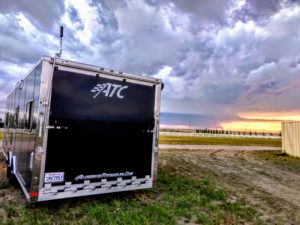
When Sash and I pulled our 28 foot toy hauler from Utah’s Starvation Reservoir to Denver, we were still unsure of where to park it. We only knew we needed to stay here for about two weeks in order to see our friends, visit with my mother and brother, and get some repair work done on Sash’s motorcycle. The good news is that a friend of Sash’s has a brother who owns a lot of land just east of Brighton, which lies about 20 miles north-east of Denver. We could stay there for three or four weeks if need be. That sounded like a welcome relief to us but we were uncertain if we would be able to get usable Verizon 4G coverage there. We need it to do our website design and marketing work.
As it turned out, we were able to get “OK” coverage, and made it workable with our WeBoost signal booster.
However, after spending an afternoon looking at every campground, public and private, in the area, they all showed no available spaces across a week or more. The best they could do is give you a space for one night, then move to another space for another night, and so on. In order to find a place to single place to stay for a week or more in the greater Denver area, you’d have to look for space about 50 to 100 miles away in places like Greeley, Colorado Springs, or Limon.
Complicating matters, Sash and I made a commitment to park our RV for free, and not pay park or campground fees. We look for federal lands managed by the Bureau of Land Management, U.S. Forest Service, Army Corps of Engineers, etc.
Van Dwellers aren’t helping the situation any.
So many people are now living in their vans and small class A or C recreational vehicles by parking them on streets. They do so because apartment rent and real estate prices have become so high in the Denver area that it’s the only recourse they have. It’s not that they’re unemployed, they actually do have jobs. And they’re not minimum-wage jobs, they are salaried positions. It’s that the cost of living has skyrocketed so high that their jobs have become inadequate.
Van Dwellers are now taking up spaces in the same federal lands that Sash and I typically stay in. We pull into dispersed campgrounds and always find the beater vans or the 1970s era Minnie Winnies. We know who they are because by the next morning they have packed up and left, but by evening they return. These are not digital nomads who travel across the country in the way Sash and I do, these are people who hold down jobs in nearby cities and commute back and forth.
The increase of van dwellers is also causing land owners to put up fences and gates on federal lands. They may own private property adjacent to BLM or National Forest lands, and will put up barriers on dirt access roads leading to campgrounds, all just to keep van dwellers out. It’s not legal for them to do this, yet they do it because van dwellers and full time RVers typically just turn around and not complain.
But my opinion is that van dwelling is a reasonable and totally acceptable lifestyle that makes sense in our mobile and transitory world. We need more dispersed camping areas on federal lands. We need better cellphone coverage in these areas so that RVers and van dwellers can work without adding to the gridlock. Places like Slab City, located in the Southern California desert, where RVers and van dwellers live permanently and self-govern, is a great model of how a libertarian lifestyle can thrive on otherwise unwanted chunk of land.
The good news is that I only come to Denver once every two years to visit my mother and brother, so now that my stay is here done, we can leave the area. On the other hand, I’m sure the RV parking situation is only going to be worse the next time I come here. And it’s not just Denver that’s experiencing this, but other large cities too.

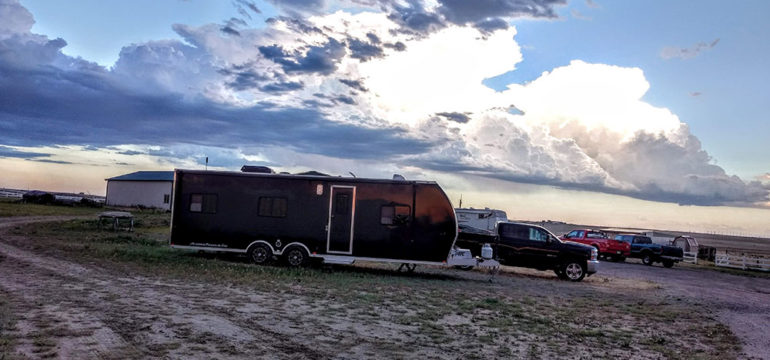
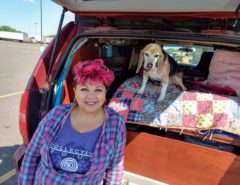
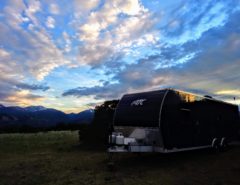
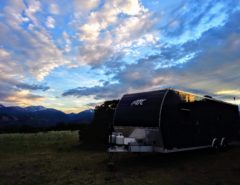
Leave a Reply